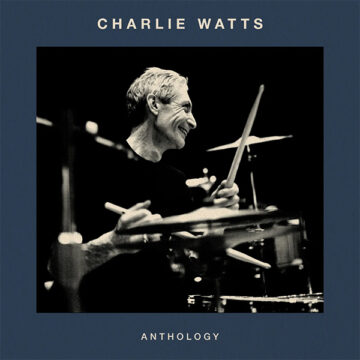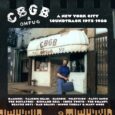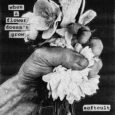Charlie Watts
Anthology
BMG

Legend has it that The Rolling Stones knew they needed Charlie Watts if they wanted to make it to the next level in their local scene, they just couldn’t afford him. Watts, an in-demand session musician, eventually joined the band and the rest is history. What is less known is Watts’ career as a jazz musician, something he began exploring in between tours and on off nights throughout the ‘80s. While he released many albums as a band leader, the best of his jazz material – including collaborations with Dave Green, Peter King, Jim Keltner, and Bernard Fowler – has been collected into the massive Anthology, the first posthumous solo release since his passing in 2021.
The two-and-a-half-hour compilation is organized into chapters that encompassed his different studio and live releases over the past four decades. The album opens with a pair of songs – “Stompin’ At The Savoy” and “Flying Home” – both recorded from a 1986 performance at London’s Fulham Town Hall. With their big band tone, these opening tracks feel like the roaring ‘20s. You can picture the scandalous and smoky atmosphere where the drinks flow so long as the band rages on. These set the tone for the album, and while there is plenty of Watts’ studio work on the record, Anthology is at its best during the live cuts.
At moments, unfortunately, Anthology may feel too big to digest. Watts’ studio work, particularly “Bluebird” and “Blackbird – White Chicks”, demonstrates his virtues as a jazz musician, equally influenced by Charlie Parker and Sinatra. The track listing, likely organized in a chronological manner, does not benefit this collection. At moments, the album drags, particularly between the set of live material from 1991 and the Keltner collaborations. This section features Watts with a full jazz orchestra as they perform six consecutive jazz ballads over the course of nearly half an hour. On the flip side, the two collections recorded live from Ronnie Scott’s, Birmingham, the first recorded in ’91 with the latter from 2001, are stellar examples of more traditional jazz, performed by a smaller ensemble. Similarly, the closing three songs, “Rockhouse Boogie”, “Ain’t Nobody Minding Your Store”, and “Swindon Swing” – live from 1978 at the Swindon Arts Centre – are further highlights that are reminiscent of the big band age.
It is hard to imagine that a core member of one of the biggest – and among the longest running – bands in the world had a series of side projects that remained largely overlooked. Watts himself was a master of the sublime and the quiet nature of his jazz career may have very well been what appealed most to making these records, next to the music, of course. Anthology is an exciting look at the range and versatility to Watts’ artistry. While it may suffer from being too large of a release, and more care to the tracking listing would have made more pieces stand out from one another, Watts’ worth as both a drummer and bandleader is demonstrated in volumes through a strong collection that showcases the other side to the late Rolling Stone.
Artist Links
SPILL ALBUM REVIEW: CHARLIE WATTS – ANTHOLOGY
Gerrod Harris










